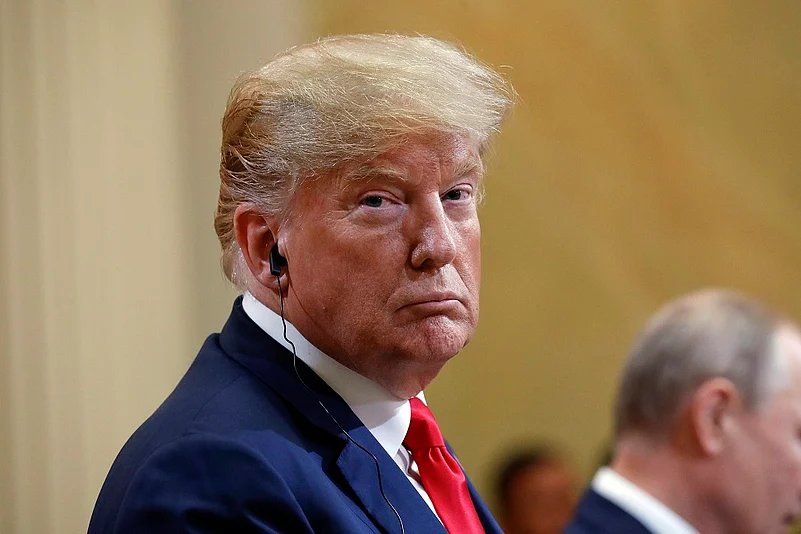US President Donald Trump on Tuesday held up India as an example to the world of a country that has successfully lifted millions out of poverty while upholding freedoms.
Addressing the General Assembly on Monday, he said India was part of a "beautiful constellation" of countries working for a common future. "There is India, a free society (of) over a billion people, successfully lifting countless millions out of poverty and into middle class."
"Many countries are pursuing their own unique visions, building their own hopeful futures and chasing their own dreams of destiny, of legacy and of a home," he said.
"The world is richer, humanity is better because of this beautiful constellation of nations."
In a break with tradition, Trump spoke third at the the high-level General Assembly session instead of the second as he arrived late.
The first head of state to speak is always from Brazil, followed by the US President.
However, President Lenin Moreno Garces of Ecuador, a critic of the US, took the second spot with a wide-ranging critique of Washington.
Trump, who took the third spot, emphasised his America First policy with a declaration that he rejected the "ideology of globalism" for a belief in patriotism and he reiterated his hardline against countries like China, Iran and Venezuela.
He criticised OPEC for "ripping off the rest of the world" and demanded that the OPEC nations cut their "horrible prices" because "we are not going to put up with it."
In contrast to his laudatory statement about India, he had harsh words for China, accusing it of currency manipulation and dumping and said that he will not allow it to exploit American workers or companies.
He defended his imposition of tariffs on $250 billion worth Chinese goods saying, "The United States lost over 3 million manufacturing jobs, nearly a quarter of all steel jobs, and 60,000 factories after China joined the WTO (World Trade Organisation) and we have racked up in $13 trillion in trade deficits over the last two decades."
He said, "Trade must be fair and reciprocal. The United States will not be taken advantage of any longer."
The US was renegotiating "bad and broken trade deals" with several countries and groups to get fairness for America, he asserted.
In what sounded like a reversal of Washington's policy of promoting democracy and exporting its values, he declared, "The United States will not tell you how to live, or work, or worship. We only ask that you honour our sovereignty in return."
He started his speech with the domestic audience and the mid-term election in mind and read out his economic scorecard, which was greeted by murmurs in the audience, which he laughed off.
He talked of the $700 million added allocation for the military this year and said the US military will be the most powerful.
He said he stood for America and the American people and was, thereby, also standing up for the world.
The speech was punctuated repeatedly by assertions of independence from global regimes and multilateralism. "America will always choose independence and cooperation over global governance, control and domination," he declared.
He spoke of his meeting with North Korean leader Kim Jong Un as a sign of progress in ending the specter of nuclear weapons, but he also said that he would not loosen the sanctions on Pyongyang till there was complete denuclearisation.
On Iran, which he criticised as force for destabilsation, he defended his decision to pull out of the nuclear deal.
In a demand that could affect India, he said, "We ask all nations to isolate Iran's regime as long as its aggression continues."
(IANS)

























